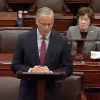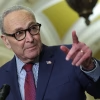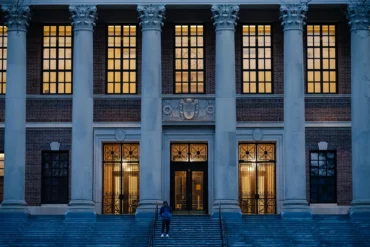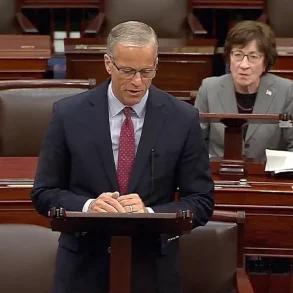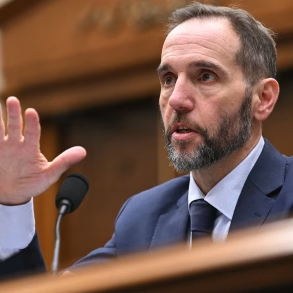On April 17, 2025, the Trump administration intensified its conflict with Harvard University, the nation’s oldest and wealthiest academic institution, by threatening to block its ability to enroll international students. This dramatic escalation stems from a letter sent by Homeland Security Secretary Kristi Noem, demanding detailed records on Harvard’s foreign student visa holders by April 30. The letter, obtained by The New York Times, warns that failure to comply could result in Harvard losing its certification to host international students, a move that could disrupt the lives of thousands and shake the foundation of American higher education.
A Clash Over Control
The Trump administration’s demands are part of a broader campaign targeting elite universities, which it accuses of fostering antisemitism and promoting “illegal and immoral” diversity, equity, and inclusion (DEI) programs. Noem’s letter specifically claims Harvard has created a “hostile learning environment” for Jewish students by failing to condemn antisemitism. It requests data on any international student involved in “known illegal” or “dangerous” activities, including disciplinary actions related to campus protests or threats. The administration argues that attending Harvard is a “privilege, not a guarantee” for foreign students, who contribute significantly to the university’s endowment through tuition.
Harvard, however, is standing its ground. The university’s president, Alan Garber, declared that Harvard “will not surrender its independence or relinquish its constitutional rights.” In a statement to CBS News, Harvard emphasized its commitment to complying with the law while expecting the administration to do the same. This defiance comes after Harvard rejected earlier White House demands to eliminate DEI programs, ban masks at protests, and shift to merit-based admissions and hiring. The university’s refusal has already led to a freeze of over $2 billion in federal funding, impacting research and programs, with an additional $2.7 million in violence prevention grants canceled.
The Stakes for International Students
Harvard hosts 6,793 international students, making up 27.2% of its enrollment in the 2024-25 academic year. Losing its Student and Exchange Visitor Program (SEVP) certification would prevent the university from admitting students on F-1 or M-1 visas, potentially forcing thousands to transfer to other schools or leave the country. While Harvard’s generous financial aid—covering tuition, housing, and even winter coats for students from families earning up to $200,000—means it relies less on international tuition than other institutions, the loss of these students would still deal a significant blow to its global reputation and diversity.
The Trump administration’s actions are part of a wider crackdown on international students. In recent weeks, hundreds of students across U.S. campuses have had their visas revoked, some for participating in pro-Palestinian protests or minor offenses like old misdemeanors. Immigration and Customs Enforcement (ICE) has even arrested students for protest activities, sparking federal lawsuits and campus unrest. At Harvard, students rallied on the steps of Widener Library on April 17, protesting the administration’s threats and demanding protection for their international peers.
A Threat to Higher Education
Critics argue that the Trump administration’s tactics go beyond addressing antisemitism and infringe on academic freedom. P. Deep Gulasekaram, an immigration law professor at the University of Colorado, warned that these actions could “damage the reputation of U.S. higher education” and discourage global talent from studying in the U.S. Legal scholars, including those interviewed by CNN, have called the moves an “unprecedented assault” on democracy, accusing the administration of weaponizing federal funding and visa policies to control universities.
The administration has also threatened Harvard’s tax-exempt status, a move that could set a dangerous precedent despite legal limits on presidential interference with the IRS. While the IRS is reportedly considering this step, Harvard’s leadership remains defiant, arguing that the demands violate the university’s First Amendment rights and exceed the government’s legal authority.
A Broader Battle
Harvard is not alone in facing pressure. Other elite institutions like Princeton, Cornell, and Northwestern have seen federal funding paused, and MIT has filed a lawsuit to protect its research grants. The administration’s push to root out DEI programs and limit campus protests has sparked a national debate about the balance between free speech, academic autonomy, and government oversight. For now, Harvard’s standoff with the Trump administration symbolizes a larger struggle over the future of American higher education.
As the April 30 deadline looms, the outcome of this conflict could reshape Harvard’s campus and influence universities nationwide. Will Harvard bend to the administration’s demands, or will it hold firm, risking its international students and funding? The answer will likely define not only the university’s legacy but also the global perception of American academia.
